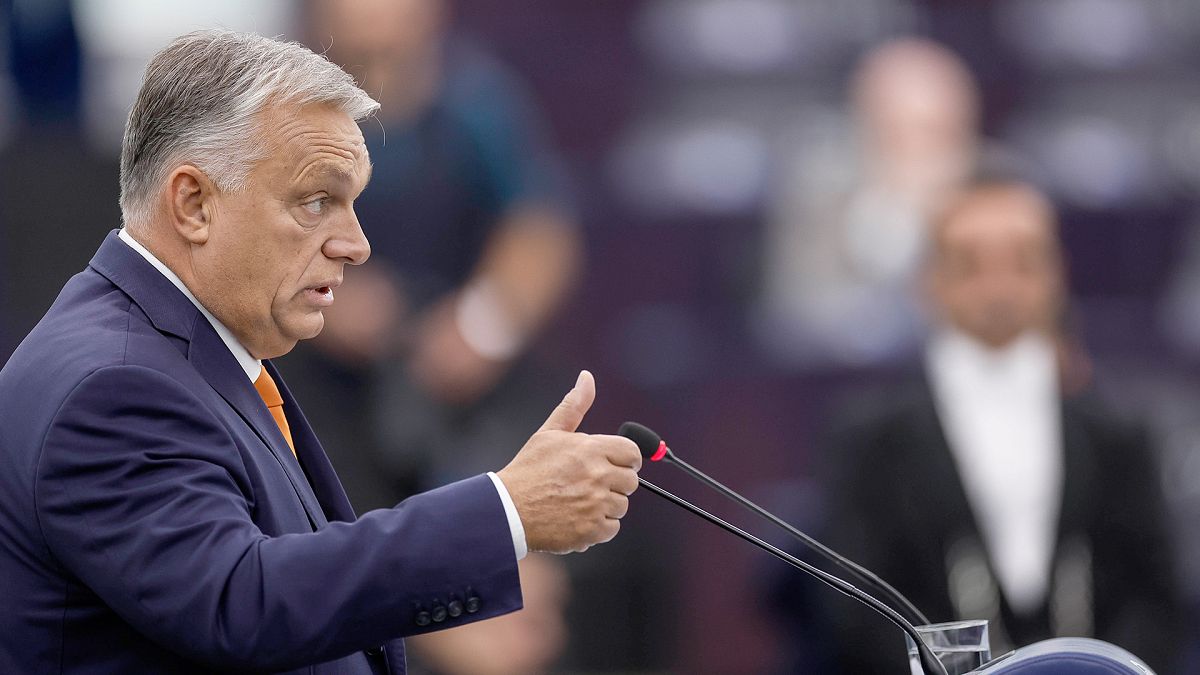The Hungarian prime minister arrived in Vienna on Thursday, where he was received by parliamentary president Walter Rosenkranz in a meeting condemned by several Austrian political parties.
Despite criticism from other political parties, Austria’s newly elected parliament president, Walter Rosenkranz of the far-right Freedom Party (FPÖ), hosted Hungarian Prime Minister Viktor Orbán in Vienna as his first official guest.
The controversial visit took place in the Austrian parliament’s reception room, with the entire leadership of the FPÖ, including leader Herbert Kickl, reportedly in attendance.
After the meeting concluded, Orbán had a separate, private meeting with Kickl. However, nothing was initially revealed about the content of their conversation.
Rosenkranz said the meeting had been arranged before he took office.
Other Austrian parties, including the Greens and Social Democrats, had pushed back against Orbán’s visit. Green party parliamentary leader Sigrid Maurer said the FPÖ view Orbán as a role model, which should be considered “an absolute warning signal.”
FPÖ finished first in the recent Austrian parliamentary elections, garnering 29.2% of the vote in the country’s first far-right election win since World War II.
Experts say the party managed to tap into Austrian anxiety on housing and healthcare, as well as often successfully blaming migration for a host of other issues.
As is customary within Austria, the group with the highest number of votes appoints the President of Parliament – hence Rosenkranz being elected to the second-highest state office in the country last week.
Orbán will reportedly not meet with Austrian Chancellor Karl Nehammer during the visit.
Far-right alliance in Europe
Austria’s Freedom Party and Orbán’s Fidesz party both belong to the new European far-right group Patriots for Europe.
The party shares a deep aversion to the Green Deal, EU Commission President Ursula von der Leyen’s flagship initiative to achieve climate neutrality by 2050, and have challenged the project of European integration as well as the power granted to EU institutions.
Patriots for Europe are also opposed to providing Ukraine with military equipment, question the efficiency of Western sanctions against Moscow and want to maintain close relations with Russian President Vladimir Putin and his government.
It is the third-largest group in the European Parliament, boasting dozens of MEPs from countries like France, Italy and the Netherlands.

